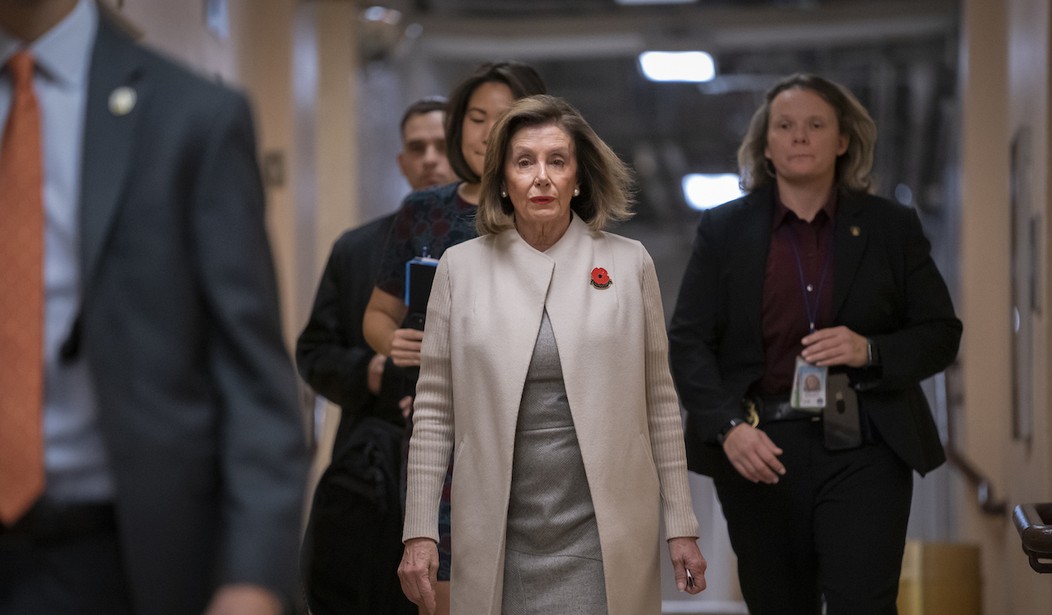On Wednesday evening, the House of Representatives passed H.R. 1, the “For the People” Act, which federalizes state election law and undermines key safeguards such as voter ID.
The bill passed 220-210, with every Republican voting against it (and two not voting) and every Democrat but one voting for it.
This kind of rank partisanship on an elections bill should worry Americans, and so should the specifics of what the bill does.
H.R. 1 requires states to allow any eligible voter to vote by mail in federal elections, a practice that is inherently less secure than in-person voting. The bill also requires states to allow any eligible voter to use ballot drop-boxes of the kind that Facebook CEO Mark Zuckerberg’s Center for Technology and Civic Life (CTCL) financed in the 2020 election, likely driving up turnout in blue areas. H.R. 1 also mandates that states accept ballots that arrive in the mail up to 10 days after Election Day, so long as they had been postmarked on or before Election Day, echoing a controversial practice in Pennsylvania in 2020.
The bill creates a nationwide automatic voter registration program, which would likely result in double-registrations and the registration of non-citizens. In fact, H.R. 1 explicitly exempts from prosecution people who are “not eligible to vote in elections for Federal office but [were] automatically registered to vote” (Sec. 1015).
It allows felons who have completed their incarceration to vote.
H.R. 1 also includes a new program providing for public financing of federal elections, matching small-dollar donations 6 to 1. The match would kick in for each grassroots contribution to a candidate up to $200. A $200 donation to a House candidate would garner a $1,200 match in public funds for a total contribution of $1,400, for example.
The bill would reduce the number of members on the Federal Election Commission from 6 to 5. Democrats argue that this will allow the commission to avoid deadlock and do its job, but Republicans warn that this would make the FEC a “partisan weapon.”
The bill would also require politically-active organizations, including 401(c)3 nonprofits, to disclose donors who give $10,000 or more; expand the definition of election-related communication; and reduce the influence of independent expenditure-only “super PACs.” Such campaign finance regulations would limit Americans’ ability to band together to advocate political causes they believe in.
While Democrats’ railing against “dark money” has convinced Americans there is something inherently sleazy about groups of Americans spending money to advocate for causes they believe in, Americans do not lose their right to free speech when they enter the political arena. The mandated disclosure of an organization’s donors, in particular, undercuts this fundamental right.
“It is beyond debate that the freedom to engage in association for the advancement of beliefs and ideas is an inseparable aspect of the ‘liberty’ assured by the Due Process Clause of the Fourteenth Amendment,” The Supreme Court wrote in the landmark case NAACP v. Alabama (1958). The State of Alabama had ordered the NAACP to hand over a list of its members during the era of segregation when the Ku Klux Klan held tremendous power in the state. The Supreme Court defended the NAACP from this government harassment.
“Tonight the House of Representatives voted in favor of a bill that tramples on the free speech and free association rights of American citizens,” Alliance Defending Freedom Senior Counsel Zack Pruitt said after the bill passed.
“Throughout its nearly 800 pages of complex and convoluted text, H.R. 1 imposes unworkable and invasive regulations on the ability of individual Americans and groups of citizens to discuss vital policy issues with elected officials or the public and to exercise constitutionally protected freedoms,” Pruitt explained. “The bill intrudes upon the private financial decisions made by everyday citizens, subjecting them to harassment and intimidation simply for giving to causes they care about.”
“Despite being called the ‘For the People Act,’ it is anything but that, as the U.S. Supreme Court has made clear that ‘the people lose when the government is the one deciding which ideas should prevail.’ We hope the Senate will see through this façade and reject this misleading and deeply flawed bill,” he concluded.
After the irregularities of the 2020 election raised serious concerns about election integrity — and after the Time story confessing to a “cabal” in the 2020 election — Democrats are foisting a partisan makeover of election law on the American people that will only worsen concerns about election integrity.
Tyler O’Neil is the author of Making Hate Pay: The Corruption of the Southern Poverty Law Center. Follow him on Twitter at @Tyler2ONeil.









Join the conversation as a VIP Member